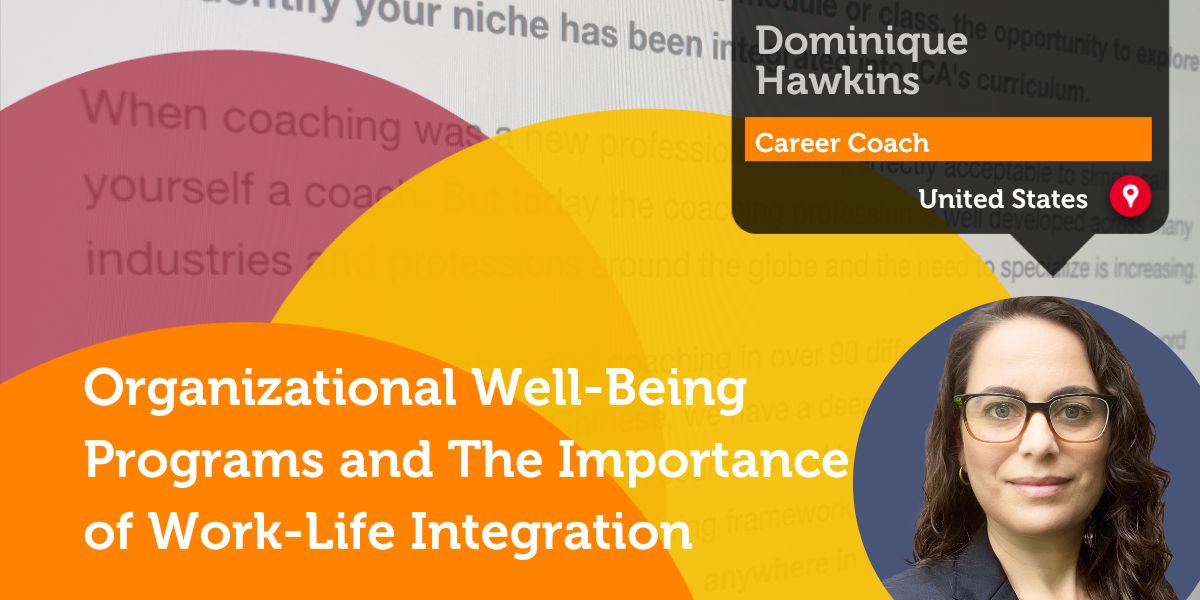A Research Paper By Dominique Hawkins, Career and Work Wellbeing Coach, UNITED STATES
Dominique Hawkins is a seasoned professional with over 17 years of experience in the fields of employment and civil rights law, nonprofit, and social impact sectors. She is the President and Founder of Ahimsa Management Group, where she provides consulting expertise to nonprofits and social impact companies to create cultures of well-being and other organizational development topics. Using assessments, evidence-backed best practices, evaluation techniques, and organizational psychology, she creates tailored interventions to help organizations thrive. Dominique is also a Work Well-being Coach and Consultant where she works with organizations to build and develop workplace coaching cultures that promote and cultivate employee well-being. She incorporates a mindfulness lens in all her work to support the whole person.

This paper by Dominique Hawkins discusses the importance of organizational well-being programs in the current and post-pandemic world. Dominique argues that despite widespread recognition of the importance of employee well-being, very few organizations implement strategies or create programs that support worker well-being. The author states that organizations should create cultures of well-being and think beyond conventional wisdom, and that work-life integration is the key to unlocking individual well-being and the starting place for leadership’s consideration.
According to Dominique, the definition of workplace well-being has expanded beyond physical well-being to focus on building a culture of holistic well-being including physical, emotional, financial, social, career, community, and purpose. She presents a model that encourages organizations to include the following in their well-being programs: work-life integration, flexible work arrangements, equitable compensation, holistic benefits, leadership practices, psychological and physical safety, career development, coaching, job crafting and redesign, connection to meaning and purpose at work, equity, diversity, inclusion, belonging, accessibility, resource support, values, mission, and sustainable business practices.
In the years leading up to the pandemic, many workers were already experiencing low levels of work-life integration. Worker stress and the threat of burnout were already concerns for many individuals and employers. As a result of the pandemic, workers found their personal resources further depleted. A 2022 research survey conducted by MindBody found that 50% of people reported that the pandemic impacted their mental well-being. The research found that although many organizations understand burnout is a major threat to their workforce, only 48% had employee well-being programs in place and only 26% had a well-being strategy.
Dominque concludes by stating that organizational leaders that fail to implement holistic well-being programs, that include work-life integration at the core, will risk retaining and attracting talent. The future of work must include well-being, and both build and support work-life integration. Dominique’s paper encourages organizations to establish and design well-being programs to support individuals and build resilient cultures.